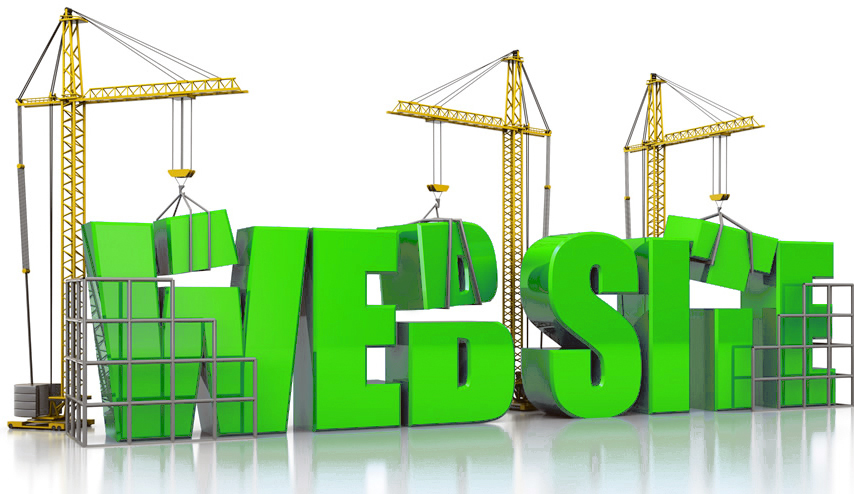
Submitted by Akshay on
Nowadays it seems like everyone has their own website. The reason is quite simple, everyone wants to get as much exposure as possible and attract a lot of visitors in the shortest time possible.
In essence web is a marketplace and website is a store in which you can showcase your products and services. Although you might be tempted to hurry and join in, there are certain technical things you should know about the websites.
This article aims to provide you with some necessary aspects.

Website Domain & Host:
When choosing your domain you should keep in mind that it needs to reflect your business idea. Try to keep it simple; a simple, easy to spell domain name is needed for a good online presence. A good domain name, that is not likely to be misspelled along with some good SEO practice will increase your ranking position.
Site that is easily located gets more customers, and consequently brings more profit to your business. Hosting also plays an important role in improving conversion rate of any business with web face. Therefore before choosing a hosting service you should be aware of your business’ requirements along with following technical factors of specific hosting type:
- Type of Hosting (shared, virtual private server or dedicated server)
- Hosting server resources (CPU, RAM, Memory and Bandwidth)
- Management type (Unmanaged, Managed)
- Hosting company track record and customer reviews
- Technical Support
You need to choose the right server, which can meet your business requirements within shared, VPS or dedicated hosting services.
Current industry trend shows that most of small and medium sized businesses are choosing virtual private servers as they offer an array of dedicated server like features within a small budget.
It is important to analyze every technical specification to choose your VPS hosting provider carefully. There are different types of VPSs, depending on its main server OS. Typically you can choose between Windows VPS Hosting and Linux VPS Hosting.
Content Management System (CMS)
When you finish with the website structure, the next step is to consider what CMS or framework you will use at the back end of your website. For beginners popular content management systems like WordPress, Joomla can prove to be pretty handy to start with.
Choosing the right CMS is a bit tricky, you should not let be seduced by its extravagant potential. Make sure you have a clear view of your requirements and make sure that actual functionality of your CMS can meet them. If you have some experience then it is best to start with a CMS you are already familiar with.
Design
Website design is equally important. First impression may not be enough to keep your visitors but its impact can not be overlooked. Therefore try to keep your design as clear as possible and keep in mind that other factors such as background color, images, text and your logo all have impact on the overall impression.
In case you are developing an eCommerce site you have to choose images that are straightforward and keep your colors calm and professional. However if you are aiming for a more casual, or gaming site then go with the vibrant and catchy colors and images.
Your design needs to balance content, colors and your logo. Websites with designs that conflicts with its contents will lose visitors.
Performance
Another technical aspect that you need to consider is website performance. When analysing your site performance you need to look at it from the user’s point of view. The following elements are good starting points:
- Check if all pages are working properly.
- Check page loading speed. Customers hate to wait so if it takes long to load your web pages you will lose potential customers.
- Make sure you include Contact Us and About Us pages.
- Check for broken links.
- Make sure you integrate social media with your site. You want people to find you and social media is a necessity.
- Make sure your site can be easily navigated. Users want to move easily through your categories and find what they are looking for, if it takes too long or is hard to understand they will find other sites that are more user friendly.
Website Compatibility
It is imperative that your website functions on all major web browsers such as Firefox, Chrome, Safari and Opera. Test your website on each browser to identify and fix any issues before going live.
Responsive Theme
When choosing or creating a theme for your website, make sure it is responsive, and your site design can adjust to different screen sizes. This is the age of mobile or handheld devices and more than half of the users use phones or tablets to browse the web.
Therefore it is prudent to have a mobile version of your website or a responsive design; you do not want to miss the opportunity to attract mobile users.
Calls to Action
It is necessary to build a good relationship with your users if you wish for them to return and engage in your future projects. Loyal customers are the foundation of your business in the long run. In order to maintain your relationship you should communicate with your customers as often as possible. Make sure you are easily reached by your customers by integrating customer support call to action on your website, and social media channels.
Customers do not give trust easily; show them that you value their input and their business.
Content Updates & SEO
Regular content updates and a good on-page and off-page search engine optimization are essential in ensuring that potential customers find your website easily in their search.
Search engine algorithms are continually changing so you need keep watch on changes to keep your rank on all major search engines.
Integration with Google products
You should integrate your website with google products to gain access to a variety of tools that Google has developed to help you optimize both your site and its ranking. These tools are designed to empower every web developer and website owner to develop, analyze and maintain their websites. Another great aspect of these tools is that they are absolutely free.
Any webmaster needs to use the following tools: Google Webmaster tools, Google Analytics, Google custom search engine for any website (site’s internal search engine), Google Chrome developer tools and Google Page-Speed analysis tool.
These tools are used by website administrators across the globe in all phases of their website lives - from designing to measuring its success.
Security
You need to make sure your website is secure, even a single loophole can prove to be devastating. You have to be aware of constant threat of hackers, viruses, especially malware. Therefore you need to incorporate as much security as possible within your budget.
SSL certificates are mandatory for eCommerce websites, where money transaction has an active role. Make sure your security measures are tight and in place to have your peace of mind.


Add new comment